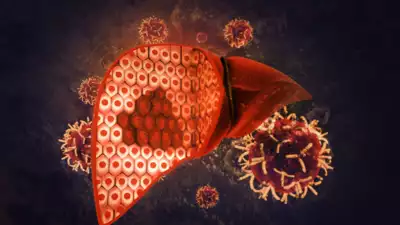18 June 2024 Punjab Khabarnama : Non-alcoholic fatty liver disease (NAFLD) is becoming a growing concern worldwide, affecting millions of people. With its connection to obesity and diabetes, it has become more than important to explore dietary solutions that might help. One interesting possibility is the role of Vitamin A in reducing the risk of NAFLD. Here is everything one might need to help understand the relationship between Vitamin A and liver health.
What is Non-alcoholic fatty liver disease?
NAFLD is a condition where excess fat builds up in the liver of people who drink little or no alcohol. It’s closely linked to obesity, type 2 diabetes, and other metabolic disorders. If left unchecked, it can progress to more serious liver conditions, including non-alcoholic steatohepatitis (NASH), liver fibrosis, and even cirrhosis.
According to the American Liver Foundation, NAFLD affects up to 100 million individuals in the United States alone. The rise in NAFLD cases is attributed to the increasing prevalence of obesity and sedentary lifestyles, making it a major public health challenge.
What role does Vitamin A play in Liver Health?
Vitamin A is a fat-soluble vitamin that plays a quite important role in maintaining vision, immune function, and cell growth. A 2020 study published in the journal Hepatology found that Vitamin A deficiency is linked to an increased risk of developing NAFLD. The study highlighted that sufficient levels of Vitamin A could help protect against liver fat accumulation by enhancing fat metabolism.
How does Vitamin A work?
Vitamin A helps regulate liver function and fat metabolism. It supports the liver in processing fats efficiently, preventing the accumulation of fat in liver cells. This regulation is crucial for reducing the risk of NAFLD, as excessive fat accumulation in the liver is the hallmark of this condition.
Another study in 2021, published by the Journal of Clinical Endocrinology & Metabolism discovered that Vitamin A supplements improved liver function in patients with NAFLD. The researchers observed a significant reduction in liver fat content and inflammation markers among participants who took Vitamin A supplements for six months.
How to add Vitamin A into our diet?
To potentially reduce the risk of NAFLD, it’s essential to maintain adequate levels of Vitamin A through diet. Here are some Vitamin A-rich foods:
While Vitamin A is beneficial, it’s important not to overconsume it, especially from supplements, as excessive Vitamin A can lead to toxicity. The recommended dietary allowance (RDA) for adults is 700 to 900 micrograms per day
Dairy products such as milk and cheese also contribute significant amounts. Plant-based sources, rich in beta-carotene, include sweet potatoes, carrots, and leafy greens like spinach, with a single medium sweet potato offering over 1,400 micrograms. Adding these foods into your diet, especially with a bit of healthy fat for better absorption, can help ensure adequate vitamin A intake and support various bodily functions.

